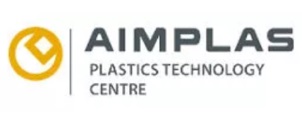Circular economy bioplasticplastic recycling 10-11-2018 - Arhive
-North American PET prices slide down 1 cent in October
North American PET bottle resin prices declined by an average of 1 cent per pound in October, ending a streak of two consecutive monthly price hikes.
Prices had jumped 6 cents per pound in September after a 2 cent hike in August. Market watchers cited improving supplies of purified terephthalic acid and other raw materials as reasons for the October decline.
Sources added that buyers may see more price declines for PET in November. Demand for bottle resin typically declines in the fall and winter months, the result of declining sales of bottled water and carbonated soft drinks.
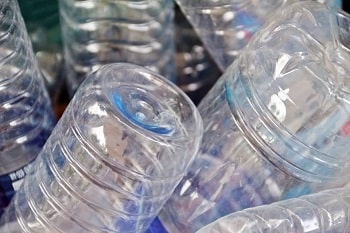
-China’s push to go green drives up prices of high-end plastics
Emissions controls make feedstocks costlier for Japanese producers
Material manufacturers are raising prices on high-performance plastics as tighter environmental regulations on Chinese production squeeze supplies of raw materials.
Toray Industries has entered talks with customers to lift the price of polybutylene terephthalate by at least 25 yen (22 cents) per kilogram, or about 5% to 6%, starting this month. Mitsubishi Engineering-Plastics is weighing a similar increase.
The material, which boasts high durability and heat resistance, is often used in parts around electronic components in autos and home appliances.
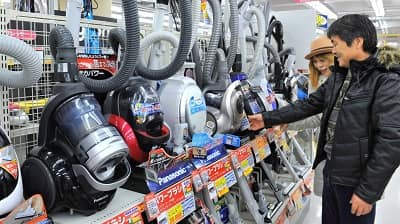
-Novozymes CFO: innovating for sustainable growth
Finance leader Prisca Havranek-Kosicek is playing a key role in supporting innovation at one of the world’s most sustainable companies.
When Novozymes wanted to hire a new CFO, it took a year to find the right person.
That’s no great surprise, given that finance plays a pivotal role driving innovation at the Danish company that was spun out of pharma giant Novo Nordisk 18 years ago.
The Novo Nordisk Foundation controls just over a quarter of Novozymes share capital and 70.1% of the votes.
It’s a formula that has resulted in Novozymes being named as one of the world’s most sustainable large companies by organisations such as Corporate Knights- owing to the strong position it has developed in enzymes and related markets.
Last year, total sales were Kr 14.6bn (£1.7bn), of which 13% was reinvested in the company for future value generation.

-How Industrial Biotech is Opening the Way to the Bioeconomy
Clara Rodríguez Fernández Clara Rodríguez Fernández on 08/11/2018
Claus Crone Fuglsang Novozymes Industrial Biotechnology Bioeconomy
Biology is helping us find more sustainable solutions to the world’s problems.
Claus Crone Fuglsang, Senior VP of Research and Technology at Novozymes, gave me an insight into the rapidly moving field of industrial biotech.
Novozymes, the world’s largest producer of industrial enzymes, is one of the oldest players in the field of industrial biotech. “We’ve been around since 1927, close to 100 years now,” said Fuglsang.
“Our enzymes go into all sorts of applications across laundry detergents, starch processing, brewing, bread making, textiles, biofuels and more.”

-Ralph Moody receives INDA’s lifetime achievement award
INDA, the Association of the Nonwoven Fabrics Industry, recognised Ralph Moody, PE, Senior Director of R&D, Berry Global, with its prestigious 2018 Lifetime Technical Achievement Award before 500 nonwoven and engineered fabric professionals, during at the association’s annual Hygienix Conference, in Orlando, FL, this week.
INDA’s Lifetime Technical Achievement Award honours those individuals with long established technical careers in the nonwovens industry and an accomplished history of technical innovation.
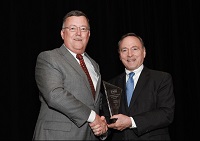
-ANDRITZ To Supply A Complete Needlepunch Line To Grupo SARI (Rubi Industrial), Spain
International technology Group ANDRITZ has received an order from Grupo SARI (Rubi Industrial), to supply a neXline needlepunch line for the production of needlepunched felts.
The line will process several types of raw material such as polyester, polypropylene, bi-component fibers, and viscose, and will produce needlepunched felts for technical markets (automotive, construction, filtration, etc).
The line is scheduled for start-up towards the end of 2018.
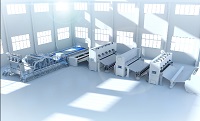
-Practicing what we preach – on plastics
Everything is degradable – whether it takes 500, or 1,000 years to break down. That doesn’t necessarily make it environmentally sound – sitting in landfill for all that time, or floating across the oceans and breaking down into microplastics.
It may not degrade at all if it’s hidden from sunlight in a mountain of landfill.
Although many of you have led the change, there are those who still expect a plastic coating on many of their products. Why else would Sainsbury’s have coined the concept of “touch-free” packaging? Sorry, Millennials, they’re blaming this on you.
Positive alternatives
Let’s not forget a commercial interest in plastic. Companies have a vested interest in this convenient material.
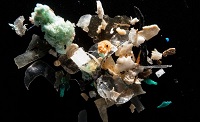
-Techtextil and Texprocess 2019: almost fully booked up
With half year still to go before the doors open, the international trade-fair duo of Techtextil and Texprocess is almost fully booked up and companies wanting to exhibit should hurry.
Proposals for the new Techtextil Forum can still be submitted.
With around six months still to go before they open their doors, the trade-fair duo of Techtextil, Leading International Trade Fair for Technical Textiles and Nonwovens, and Texprocess, Leading International Trade Fair for Processing Textile and Flexible Materials, is almost fully booked up.
The number of registrations received for the two fairs (14 to 17 May 2019) is already significantly over that of the previous editions.
Although companies can still register to exhibit at both events, they should not delay as the remaining exhibition space is limited.

AIMPLAS has organised the first edition of its workshop ‘How to formulate plastics: understanding additives, fillers and fibres’ to take place in Brussels at Leopold Hotel on 20th-21st November 2018.
Luis Roca, head of the Compounding Department of AIMPLAS, will be talking about additives, fillers and fibres and colouring plastics.
Aimed at R&D, quality control or other technical roles in compounders and recycling, extrusion and injection moulding companies, the workshop is also suitable for fillers/fibres/additive suppliers who are interested in strengthening their knowledge in the field of polymer modification.
